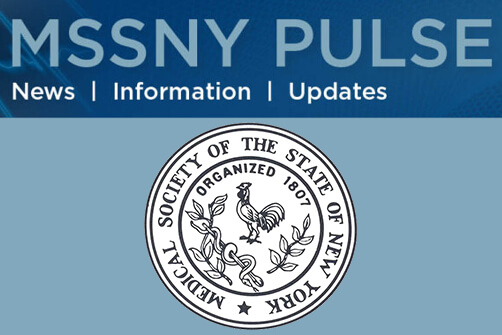
MSSNY Announces Support of Medical Aid in Dying Act
The Medical Society of the State of New York passed a resolution at its annual House of Delegates meeting expressing support for legislation that would permit Medical Aid in Dying, provided the physician always retains the choice to opt in or to decline to participate in the defined process. “MSSNY is a multicultural society, and this reversal of our previous policy respects different cultural approaches to this sensitive topic and empowers patient autonomy,” President Jerome Cohen said. “MSSNY’s policy reflects no coercion of patients or physicians, but rather allows the physician to make their own choice to participate or not.”
Politico (4/15), Politico Pro (subscription required) (4/16), Spectrum News (4/15).
Share
Health Commerce System – New Enhancements and Security Features The Department of Health is updating its Health Commerce System (HCS) to enhance security and improve user experience. Starting May 9th, 2024, you’ll see improvements to our “Forgot Password” feature and login interface. For further details and assistance, click here.
DEA Announces Move to Reclassify Marijuana from Schedule I to Schedule III Colleagues: On April 30, the DEA announced a move to reclassify Marijuana from Schedule I to Schedule III, alongside Ketamine and some anabolic steroids. This would recognize the use of medical marijuana and make it easier to conduct research, but marijuana would not […]
LaughMD App Pioneers Laughter as Billable, Scalable, Evidence-based Medicine LaughMD is improving the approach to healthcare and wellness in hospitals, dialysis clinics and oncology facilities, bringing laughter right to the bedside of patients and into the daily routines of healthcare staff. With a powerful blend of clinical research and innovative technology, LaughMD offers a unique solution to combat […]
California and Oregon Push Toward Universal Healthcare California and Oregon, in response to the federal healthcare policy gridlock, have taken significant steps toward establishing universal healthcare coverage. These states have enacted laws that mandate creating publicly financed, universal coverage systems. These reforms promise substantial cost savings and improved healthcare access for all residents. However, the […]




